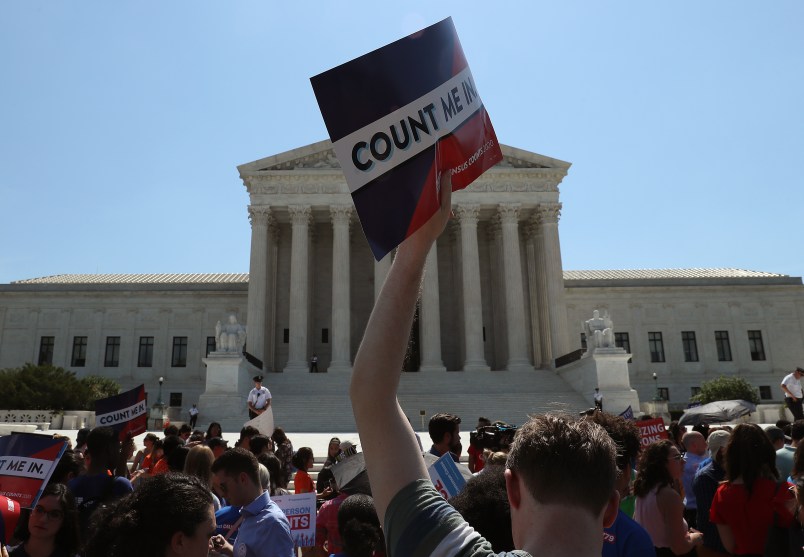The Trump administration on Wednesday moved to have the Supreme Court decide whether undocumented immigrants can be excluded from the apportionment count of the 2020 census.
The latest legal maneuvering comes as part of a major Trump initiative to increase the power of rural white communities that form the Republican Party’s political base at the expense of diverse, immigrant-rich urban areas.
The case centers on a memo President Donald Trump wrote in July to remove undocumented immigrants from the data that determines how many House seats each state will get after the completion of the 2020 census.
Last week, a three-judge panel in New York declared the memo an “unlawful exercise of the authority granted to the President by statute.” The judges also stopped in its tracks Trump’s plan to have Commerce Secretary Wilbur Ross determine a population count minus those undocumented immigrants to use for the new apportionment policy.
The judges found in their ruling that the memo had chilled responses to the census from immigrant communities.
“In short, the record supports a conclusion that the Presidential Memorandum has created, and is likely to create, widespread confusion among illegal aliens and others as to whether they should participate in the census, a confusion which has obvious deleterious effects on their participation rate,” they wrote.
Trump’s memo was a significant break with precedent for the census, which has long sought to include everyone living in the United States. The three-judge panel did not address the constitutional issues at play.
The stakes of the case are high: states like California and Florida would lose a seat after the 2020 census under Trump’s apportionment policy, while whiter states like Alabama and Ohio would keep a seat they otherwise would have lost.
There are also other lawsuits concurrently wending their way through the courts that focus on the administration’s attempt to expedite the census timeline. If the administration is successful in chopping that timeline in half, Trump will be sure he can carry out the apportionment process without it falling into the hands of a Biden administration to reverse.
Federal law enables the administration to skip the appeals court step and bring the apportionment case directly to the Supreme Court, though the Department of Justice lawyers also indicated that they’d be appealing the case to the 2nd Circuit Court of Appeals. Unlike in most cases that seek Supreme Court review, the high court is required to consider this appeal.
Read the Trump administration’s notice of appeal here:







What is the timeline on something like this? Could they actually get a ruling before 2021?
Some love the smell of desperation flop sweat. Not me…
The brown folks are comin’ to get ya, Donnie…
And here we go…THIS is what is known as ‘packing the courts’ and not only did they screw with the Supremes but McConnell has spent 4 years handing out lifetime appointments to unqualified College Republicans right out of law school.
United States Constitution, 14th Amendment, Section 2: ”Representatives shall be apportioned among the several States according to their respective numbers, counting the whole number of persons in each State, excluding Indians not taxed.”
Done.
”Next!”
When was the last time the house was split by 1-2 seats? Or the electoral college by 1-2 votes? DC and Puerto Rico statehood would do way more than this to get us a more representative system